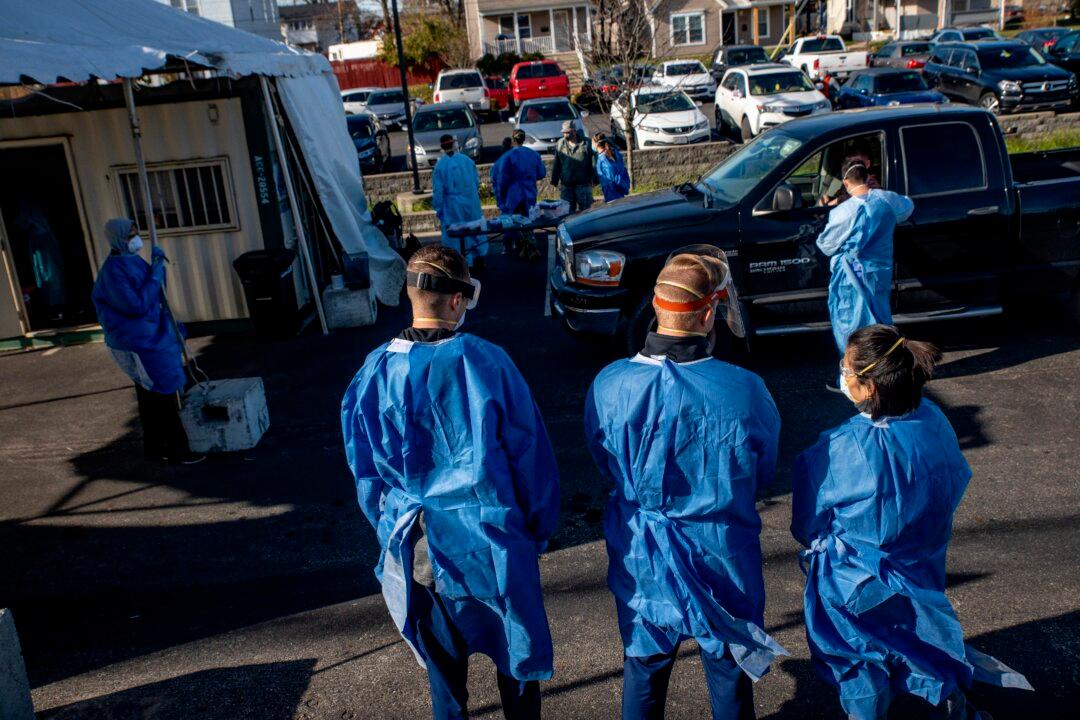The U.S. Centers for Disease Control and Prevention (CDC) issued an alert to health care workers across the United States to prepare for a potential surge of COVID-19 infections due to the high transmissibility of the Omicron variant.
The alert is designed as an update to “recommendations to enhance protection for healthcare personnel, patients, and visitors, and ensure adequate staffing in healthcare facilities,” the alert said, which added that the CDC’s contingency options include shortening the amount of time health care workers need to quarantine following a COVID-19 infection.





